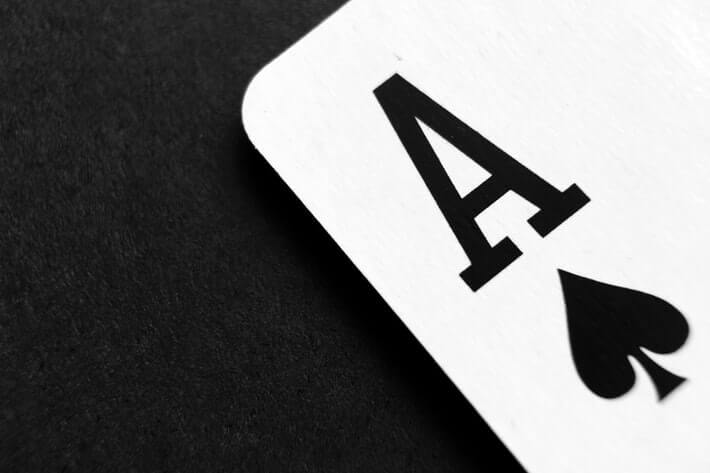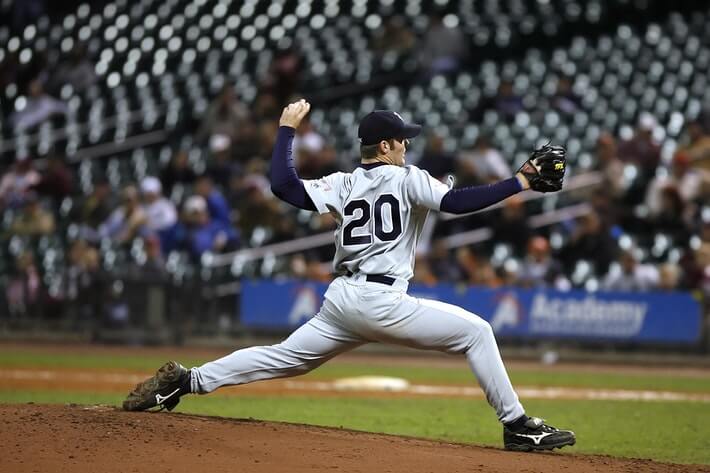With sports betting expanding into the US, now is the perfect time to brush your knowledge on everyday slang used in betting. Some of these terms can sound complex and counter-intuitive but have no fear as they are straightforward to understand once someone has explained them. So, without further ado, here are the most used betting terms and their meanings.
Most Widespread Terms in Sports Bettings
The following terms are regularly found at online betting sites and sportsbooks. They are listed here in alphabetical order.
Accumulator
Or ACCA is a wager composed of several selections rolled into one bet. You have to win on all of them to win the accumulator bet. Since every single wager in your accumulator bet has to be successful, the odds for ACCA bets pay a fair bit higher than usual. It is not just similar to a parlay in meaning; it’s the same type of bet, just called differently in Europe and the UK.
Action
One of the most widely used sports betting terms, the action represents a wager of any kind on a sports event.
Across the Board
This is what we call making a win, place, and show bet on the same horse with the same wagering amount. In racing betting terms, a win bet is choosing a horse to finish the race first, a place bet is selecting a horse to finish the race in the first or second place, while a show bet is picking a horse that will finish the race in one of the first three places. The payoff for a win bet is more significant than the place bet, which is better than the show bet, but if your chosen horse wins, you’ll win all three.
Added Game
This is betting terminology for a sporting event that is either included in betting boards after the main lists have been posted or is not a part of the standard Las Vegas betting rotation. An added game might be a postponed match or the inclusion of a college football match due to popular demand. It’s a common occurrence with online casinos.
AET odds
After Extra Time odds are usually shown on soccer matches with added extra time after the 90 minutes of regular play ends. They are given as live odds and are very attractive to thrill-seeking bettors.
Against the Spread
When talking about betting terms and lingo, you have to know what Against the Spread or ATS bets are. Basically, when one team is a clear favorite, bookies will give them a disadvantage in points or goals scored, so there is always a spread to bet against (-5 on the favorite, +5 on the underdog, for example). This approach is especially popular in hockey betting and in baseball betting markets.
Alternate Lines
One of the common basketball betting terms, alternative lines are odds that might be lower or higher from the main posted line. They are primarily used with game total betting or spreads in basketball and other sports as a means of offering safer or riskier options to punters who find the main bets unsatisfying.
American Odds
These types of odds have you either betting to win $100 (if they are expressed against the favorite in the game) or betting $100 to win a certain amount, as determined by the bookie (if betting on the underdog). There are other terms used in sports betting for American odds, the most common being Moneyline.
Arbitrage
Often referred to as ARB, arbitrage is a betting type where all possible outcomes in a single event are covered, and you are guaranteed a profit. This won’t happen at a single sportsbook, obviously, but occurs when several betting shops have different opinions on how the odds for a game should look.
Backdoor Cover
A backdoor cover happens when a team scores late-game points to cover the spread but not change the game’s outcome. Say your team needed to lose by less than two goals for you to win the bet. They score a goal in the 89th minute of the match, and it’s now 3-2. The team will still lose the game unless they score another goal, but your bet is now a winning one.
Bad Beat
When you’re betting on sports, some terms like this one represent a sudden bet loss when the wager was on the precipice of winning. It’s basically the opposite of a backdoor cover, as unexpected late-game events can ruin a bet that was on the verge of being a winning one.
Bankroll
Money used for betting. Each winning wager adds to your total, but losing ones will decrease it.
Beard
A person that places a bet for another person and helps keep the actual bettor’s identity hidden from bookmakers.
Bookmaker
An individual or a company licensed to take bets and create betting lines. Also known as bookie, linemaker, or sportsbook.
Buying Points
Some bookmakers allow bettors to change the set line and adjust odds for an additional fee.
Chalk
One of the alternative sports betting terms and definitions for a favorite in a match or sports event. Bettors who place a significant wager on favorites are often called chalk bettors.
Circle Game
Sports events that bookmakers circle out since they have lower betting limits. Circle games usually include a match with bad weather before the game, a sports player with a possible injury, a night off, or a trade rumor.
Closing Line
Final betting odds before the match or event starts.
Cover
One of the more popular football betting terms, also known as covering the spread in betting terminology, this refers to a result in which the favorite wins but also covers the spread, making even a handicap bet on their victory a winning one. It’s used primarily in football and basketball.
Dime
A $1,000 bet.
Dog
An alternative name for an underdog in a match, a side that the bookie feels has little chances of winning. It’s marked with a plus symbol in American odds.
Dollar
Bookie jargon for a $100 wager.
Each-Way
A bet that tries to predict a horse that will complete the race in first or second place. To have these betting terms explained simply, think of it this way: you win one bet if the horse finishes the race second or both bets if it finishes first.
Edge
When a bettor gains an advantage in a bet over a bookmaker, thanks to insider information or extensive research.
Exacta
This is one of the less-common horse race betting terms. The point here is not only guessing the winner but the horse that will take second place too. As you can imagine, this is a pretty tough bet to win, but the payoffs are well worth the risk.
Exotic Bet
Any kind of bet other than game totals, money lines, or point spread. These wagers include prop/proposition bets, parlays, and specials.
Favorite
A team that bookmakers favor as the winner in a sports event. In American odds, favorites are marked with a minus symbol.
Fixed Odds
When reading sports betting terms and conditions, you’ll often find mention of fixed odds. This simply means that once your bet has been accepted at specific odds, those will not change for you even if the bookie later changes them (for example, just before the game starts because a star player on one team got injured).
Future Bets
As the name implies, this means wagering on a future sports event.
Grand Salami
A type of bet where the wager is placed for under/over on the total number of goals/points/runs scored across all games in a league during one match day.
Handicapper
A bettor that analyzes sports games or events to predict and pick winners. Often refers to punters who publish sports predictions.
Handle
The total amount of money that a bookie takes on a single match or sports event.
Hedge
One of the more common sports betting terms, hedging refers to placing a bet opposite to your original one to minimize losses if your original wager fails.
Hook
A half-point is added to the game’s final score to ensure that there will be no push bets, and one side will win the wager.
In-play Betting
Bets that you place after the start of the sports event, also known as live betting.
Juice
Or another name for a vig or vigorish is a tax that a bookmaker adds to a placed wager. It’s normal to see a 10% juice, wherein a $110,000 bet, a bookmaker earns $10,000.
Laying Points
Some betting terms and their meaning can go over our heads if we don’t have the lingo explained. One such term is laying points, which refers to betting on the favorite in a game, despite the handicap placed on them. The opposite is taking the points, which refers to taking the handicap and betting on the underdog.
Layoff
This refers to a bookmaker placing a bet with another bookie to reduce the risks on a particular bet.
Limit
The maximum wager accepted by the bookmaker for a single bet. Players can and should set their own betting limits too.
Lines
Another term for betting odds.
Lock
A large favorite in a game, often referred to by tipsters as a 100% sure win. Don’t fall for this – sports is exciting precisely because nothing is ever 100% guaranteed.
Margin
A type of wagering where you not only have to pick the winner but the correct winning margin as well.
Moneyline Bet
An essential part of the sports betting glossary of terms, these types of bets involve wagering if a team will simply win the game, without any point spread to worry about. You can see plenty of Moneyline bets in football.
Mush
A bettor that is perceived to be bad luck.
Nickel
A wager worth $500.
Novelty Bet
Unique bets that are often entirely unrelated to sports. You can, for example, bet on the next Oscar winner or try to guess the next US president.
Odds
Odds, by definition, represent wagering lines that bookmakers show for various sports events; they are the starting point in understanding other sports betting terms.
Oddsmaker
Another term for a bookmaker. A person or several people who set daily lines, thereby “making” the odds.
Off the Board
These are sports events listed on betting boards without odds. Hence, bettors can not place wagers on these games. Off-the-board events can occur if there is a late injury or another reason that a player or team won’t be able to participate in the game.
Over/Under (Totals)
To get a better understanding of these betting terms, you first need to decode the wording. These are called totals because they look at the total number of points or goals scored by both teams or players at the end of the match. When betting overs, you are betting that the number will be larger than whatever the bookie predicted. With under bets, it’s the opposite: if you bet that there will be less than two goals scored, you will win as long as the match ends 0-0 or either side wins by 1-0.
Parlay
Like accumulator or multiple, this form of wagering gathers several games together for a more lucrative payout. To win a parlay, every game in the bet has to go through. The higher the number of games, the better payout since the risk is much larger, too.
Pick ’em
A sports event without favorites or underdogs, or a wager with the same odds on either side.
Point Spread
One of the essential sports betting terms to remember, a point spread represents odds made to even out the playing field. They are labeled with a + symbol for underdogs and a – sign for favorites. A point spread of +2 means that the team you are betting on starts with two points or goals ahead of their rivals for the purposes of resolving the bet result.
Push
Any wager with a tie as a final result. With a push, neither team covers the spread, no bettor wins, and all bets are refunded.
ROI
Also known as Return On Investment or actual profit, it is the amount of cash you earn on a bet, based on the amount of money you’ve wagered.
Run Line
This is the baseball equivalent of spreads in betting terminology, except that it concerns runs instead of points or goals scored. It’s typically set at +1.5 for the underdog and -1.5 for the favorite.
Sharp
Professional and experienced bettors with significant resources dedicated to finding their bets. Sharp bettors search for the best odds and have an intricate knowledge of their betting market(s).
Square
A new, inexperienced bettor that is the opposite of a sharp player.
Stake
The money that bettors risk by placing a bet.
Steam
One of the sports gambling terms used when odds experience a sudden, colossal influx of betting, and betting lines experience dramatic changes in a short period of time.
Taking the Points
The opposite of laying points, this simply means that you take the handicap given by the bookie and bet on the underdog.
Teaser
A form of bet where bettors can alter the total or point spread for a sports event. Every time they change the spread, the payout gets reduced.
Tout
Someone who gives away or sells their sports betting knowledge to another player.
Two/Three-way Odds
Two-way odds is a bet with two sides that doesn’t have ties as a betting possibility. Three-way odds is a wager with three sides which allows ties as a betting option.
Wager
One of the most used sports betting definitions, a wager broadly refers to any form of a bet.
Welch
To welch means not to pay off a losing bet.
Wiseguy
Any person with advanced betting knowledge is considered a wiseguy. It’s a term broadly used for anyone from experienced bookies to seasoned bettors and “sharps.”
Conclusion
Half of wagering success comes from being familiar with the game, its players, and its rules. The other half, though, isn’t just pure luck: it also comes from truly understanding betting odds and what the various slang terms used in wagering mean.
FAQ
What are some betting terms?
There is plenty of terminology in sports wagering you ought to know. Terms like accumulator, against the spread, fixed odds, over/under, and Moneyline bets are just some that you may run into on your betting adventure. Luckily, our guide covers all of them and more, so give it a read!
What does +7 in betting mean?
A +7 means that if you bet on the underdog, you win the bet if that team wins straight up or loses by up to seven points or goals. A +7 combined with the game’s result means that your team’s 90-85 loss still gives you a winning bet, as the +7 added to their score pushes them to 92 points.
What are the most common bets?
Moneyline, point spread, and totals are the most common bet types you’ll encounter.




